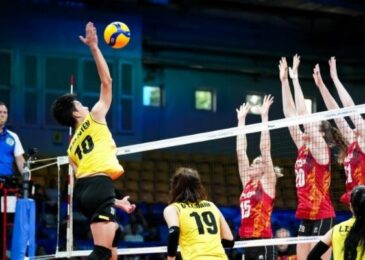No matter where you go in the world to teach, the traditional coaches’ mantra of “Can’t pass, can’t hit” is one of the first statements you hear. Then, when introducing our sport to new players of any age, the first skill taught is almost always “the pass.” However, it’s time to rethink this approach. Instead of focusing solely on passing, we should prioritize teaching the skill of serve reception.
Being the world’s gold medalist at passing as taught in various training methods actually hinders the development of the most important skill in the game – serve reception. Too much time is spent on skill development for passing, when what truly matters on the court is the ability to receive serves.
Bạn đang xem: STOP Teaching Passing!
Many coaches claim to train in a gamelike manner, but often fail to incorporate serve reception into their drills. However, if you think about it, how many points in a game start with a serve? And how many of your drills reflect this reality? Not enough. That’s why games like queen of the court and speedball are so popular with players. They provide opportunities to practice serve reception skills under pressure, just like in real games.
Xem thêm : Beach Update: Top Teams Compete for Victory in Hamburg
The technique of passing itself is relatively simple. The forearm pass, done below the waist, involves making contact with the ball above the wrists and directing it towards the target. The overhead pass, used for higher balls, requires contacting the ball with an overhead, setter-like hand pocket.
But serve reception is more than just mastering these techniques. It involves observing the server’s habits, mannerisms, body position, and toss. By watching through the net, experienced receivers can anticipate the type of serve before it even crosses the net. This ability to read the serve is crucial for success in serve reception.
In addition, serve reception often requires adaptability. Players may misjudge a serve, ending up in a difficult position where neither the forearm pass nor the overhead pass is suitable. In these situations, specialized techniques like the “alligator” pass or the “tomahawk” pass can still help send the ball up to the setter’s side of the net.
Xem thêm : Six Healthy Snacks to Keep in Your Sport Locker
It’s also important to consider the importance of serve reception in practice. Many coaches prioritize serving drills but neglect serve reception. By incorporating serve reception into practice, not only do players improve their ability to read serves, but they also develop a better understanding of what constitutes “out” when serving.
Ultimately, the success of a team often hinges on their serving and serve reception skills. To improve these skills, we need to train in a gamelike manner that includes serve reception in various training scenarios – serve receive-set-hit, serve reception-set-hit, and serve receive-set-hit.
By reevaluating our focus on passing and dedicating more time to teach serve reception, we can better prepare players for success on the court.
FAQs
Q: Why is serve reception more important than passing in volleyball?
A: Serve reception is crucial because it sets the tone for the game. A successful serve reception allows the team to execute their offense, while a poor reception puts the team at a disadvantage from the start.
Q: What are some specialized techniques for serve reception?
A: When faced with difficult serves, players can utilize techniques like the “alligator” pass or the “tomahawk” pass to send the ball up to the setter’s side of the net.
Q: How can coaches incorporate serve reception into their drills?
A: Coaches should design drills that prioritize serve reception alongside serving and other skills. By training in a gamelike manner, players can improve their ability to read serves and develop a better understanding of the concept of “out.”
Summary
In volleyball, serve reception often takes a backseat to passing, but it’s time to change that perspective. Focusing on teaching serve reception from the start and incorporating it into practice will better prepare players for success on the court. By observing the server’s habits, practicing adaptability in difficult situations, and training in a gamelike manner, players can improve their serve reception skills and set the foundation for winning games. So let’s shift our focus and prioritize teaching serve reception to enhance overall performance in volleyball.
Nguồn: https://alpinetgheep.com
Danh mục: Volleyball


